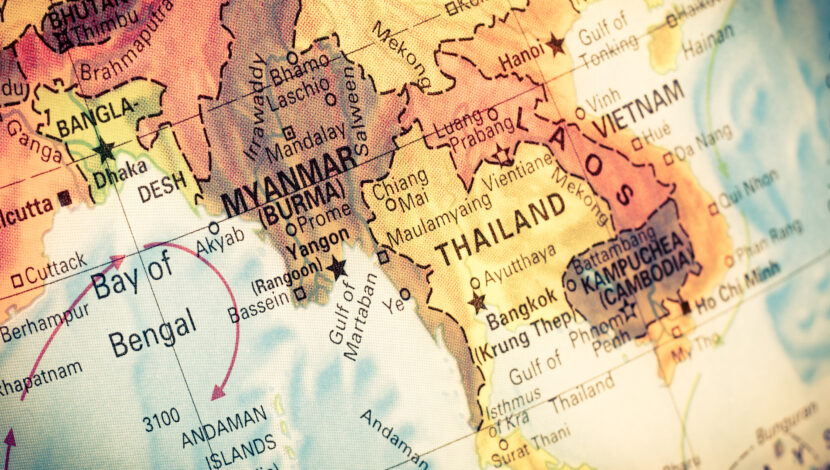The Unitarian Universalist Service Committee advances human rights through grassroots collaborations.
Promoting Human Rights and Grassroots Leadership in Burma for 25 Years

Update, February 2021: Read UUSC Vice President and Chief Program Officer Rachel Gore Freed’s opinion piece at Common Dreams: “Reversing Myanmar’s Coup Isn’t Enough. Here’s How to Build a Better Burma.“
***
Burma (Myanmar) is a multicultural country at the crossroads of Asia home to 135 official ethnic groups and hampered by some of the world’s longest running civil wars. UUSC has been partnering with grassroots organizations in Burma since 1995. The country’s human rights struggles have spanned both human-made and natural disasters since gaining independence in 1948, and UUSC’s support has been rooted in empowering local activists and communities to respond more effectively to these crises.
Many ethnic and religious minorities, particularly in border regions, have faced severe and ongoing human rights violations in their pursuit of democratic rights, including discrimination and horrific violence. UUSC’s support in the 1990s and early 2000s focused largely on promoting human rights, women’s leadership, and grassroots mobilization among refugee populations at the Thai-Burma border, where the international solidarity movement for Burma was centered.
From the mid-2000s, UUSC expanded its support to include assistance for grassroots communities facing natural disasters, including funding a community center for Burmese migrants in Southern Thailand after the unprecedented Indian Ocean Tsunami of 2004, and providing humanitarian aid in 2008 following Cyclone Nargis, considered the worst natural disaster in the country’s recorded history in which nearly 140,000 people lost their lives.
Many of the community and human rights activists that UUSC supported were at the forefront of the civil society movement that pushed for the military government to undertake democratic reforms. Burma experienced major democratic progress in 2012 as the junta opened elections to formerly banned political parties, released hundreds of political prisoners, and allowed civil society to organize domestically.
Despite these democratic reforms, however, the military continues to exert its power across minority areas to control land and resources. The 2017 military campaign against the Rohingya Muslim minority in Northern Rakhine State was unprecedented in its brutality, leading to the death of an untold number of innocent civilians and forcing more than 700,000 to flee as refugees to Bangladesh in a matter of weeks.
With a United Nations investigation claiming that the crimes committed against the Rohingya “bear the hallmarks of genocide,” and an open case at the International Court of Justice now determining Burma’s culpability in upholding its state obligations under the 1948 Genocide Convention, UUSC’s Burma program focuses on supporting Rohingya partners and allies to build a solidarity movement for equality, justice, and accountability.
UUSC shares our partners’ vision of an inclusive, democratic, peaceful, and rights-respecting Burma. We believe that two fundamental things are key to realizing this vision:
- A strong civil society led by directly impacted communities.
- Government accountability for human rights abuses.
UUSC supports grassroots organizations in Burma that are either led by members of directly impacted communities or supporting their self-empowerment. Our partners document and publicize human rights abuses, advocate for equality for religious and ethnic minorities, campaign for justice and accountability, run civic empowerment and conflict resolution trainings, and build diverse coalitions across grassroots activists.
Here are some of our partners:
Image Credit: Adobe